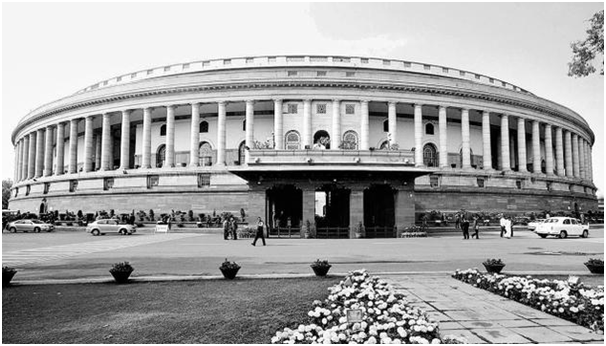Are Muslims Being Pushed out of Parliament?

NEW DELHI: Parliament has started reflecting what Opposition parties describe as an ‘anti-Muslim’ bias, but are guilty of perpetuating themselves. In fact the BJP seems to be the only party re-nominating its two Muslims MPs--Minister Mukhtar Abbas Naqvi and journalist MJ Akbar--- for re-election to the Rajya Sabha with the Congress list of candidates not including replacements for its retiring Mohsina Kidwai and AA Taq.
The polarisation successfully created in states like Uttar Pradesh has dissuaded the non-BJP political parties from fielding Muslim candidates for fear of dividing the voters along religious lines. In the 2014 Lok Sabha elections Muslim representation hit an all time low of just 22 MPs, with UP despite its substantial Muslim population, not returning a single minority candidate to the Lower House. The representation of 11% Muslims in the Lok Sabha is barely 4.2%, a low average that has dropped sharply from 1980 when a new high of 49 Muslim MPs was reached.
In the Assembly elections the Muslims have fared a little better with 56---largely from the Trinamool Congress---being returned to the West Bengal legislature. In Bihar earlier all the non-BJP parties fielded minority candidates with the Rashtriya Janata party heading the list with 16 candidates of whom 12 were elected.
The bugle for the elections has now been sounded in Uttar Pradesh that many political pundits are looking as a poll prediction for the 2019 Lok Sabha. A senior Samajwadi party leader said that the party will find it difficult to field Muslim candidates for fear of consolidating the majority vote, “given the BJP propaganda.” Asked why he was complaining instead of countering he shrugged off the question with a “you know why, don’t make me say it.”
The Samajwadi party leaders are particularly worried about the inability of Mulayam Singh and Chief Minister Akhilesh Yadav to counter the propaganda that effectively, in political terms, cuts into the SP support base. The Muslim voter has over the past two years become very quiet, as was evident in Bihar, where he made up his/her mind to vote for the Janata Dal(U) and allied parties but refused to state his choice for fear of reaction. In fact during the campaign Chief Minister Nitish Kumar focused on development, rather than social issues, to ensure that the BJP was not able to polarise the votes and as a senior JD(U) leader told The Citizen, “we had to strategise the election to win.” As he said, “a single word by us for the Muslims would have been used by the BJP to consolidate the Hindu voters, and we were able to prevent that by keeping the focus on development and the failure of Prime Minister Modi to fulfil his promises.”
Interestingly, the Muslims in Bihar quietly admitted that this strategy was sound. In fact in one village a group of Muslims refused to be drawn into a secular/communal discussion maintaining that like everyone else, their issues were of livelihood.
In Uttar Pradesh, however, this is not going to be easy as the Samajwadi party has placed itself as the direct foil to the BJP in what even the SP members insist is a “collaboration” of sorts. As a RLD worker in Muzaffarnagar said, “the BJP talks of the Hindus, the SP talks (does nothing of course) of the Muslims and both hope to win on this wicket.” Significantly, BSP leader Mayawati has kept her head above these waters, and is currently focusing on corruption and lack of development. She has been raising Dalit issues.
Sources pointed out that of all the political parties in UP Mayawati is best poised to field Muslim candidates without fear of losing her vote in specific constituencies. However, for the Rajya Sabha in place of her retiring MP Salim Ansar she has named Satish Mishra and Ashok Siddharth in what could be indicative of her state election strategy. Mishra has enjoyed an off and on relationship with Mayawati, and clearly at the moment he is back in favour.
The Congress list includes P.Chidambaram, Jairam Ramesh, Ambika Soni, Chhaya Varma, Oscar Fernandes and others with not a single Muslim member to replace Kidwai.
This trend is causing some worry amongst the Muslims who find themselves being marginalised socially, and now politically. The play of politics in the field is accelerating this trend, with the Opposition parties unable to counter the communalisation of polity with a strong secular campaign.



